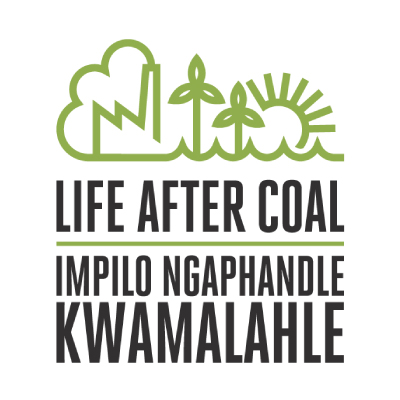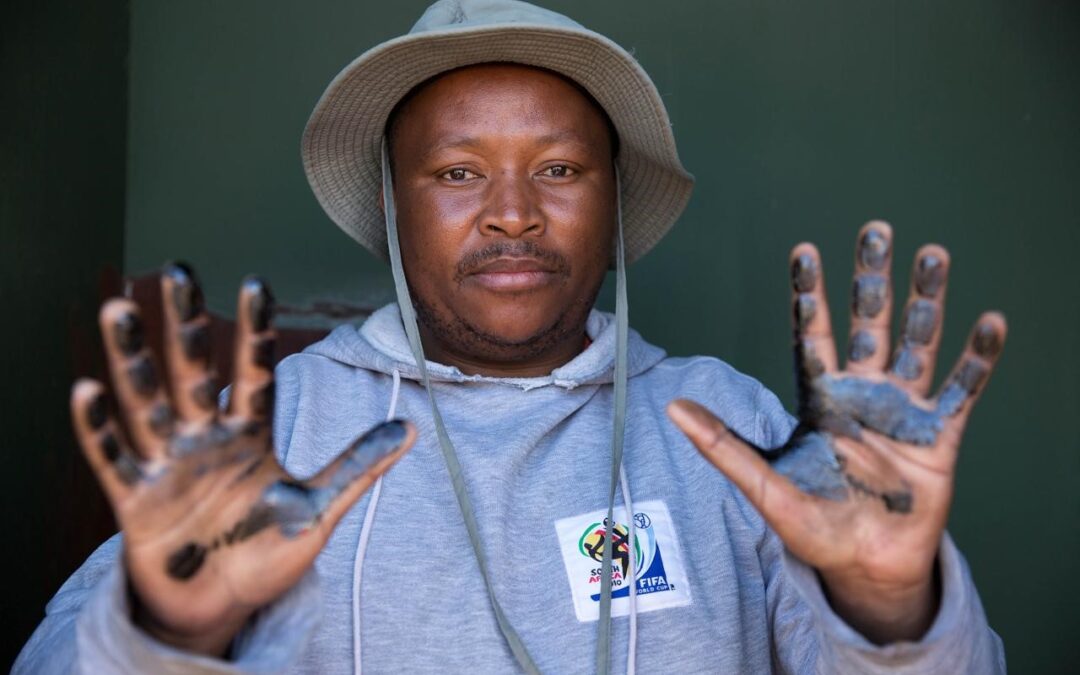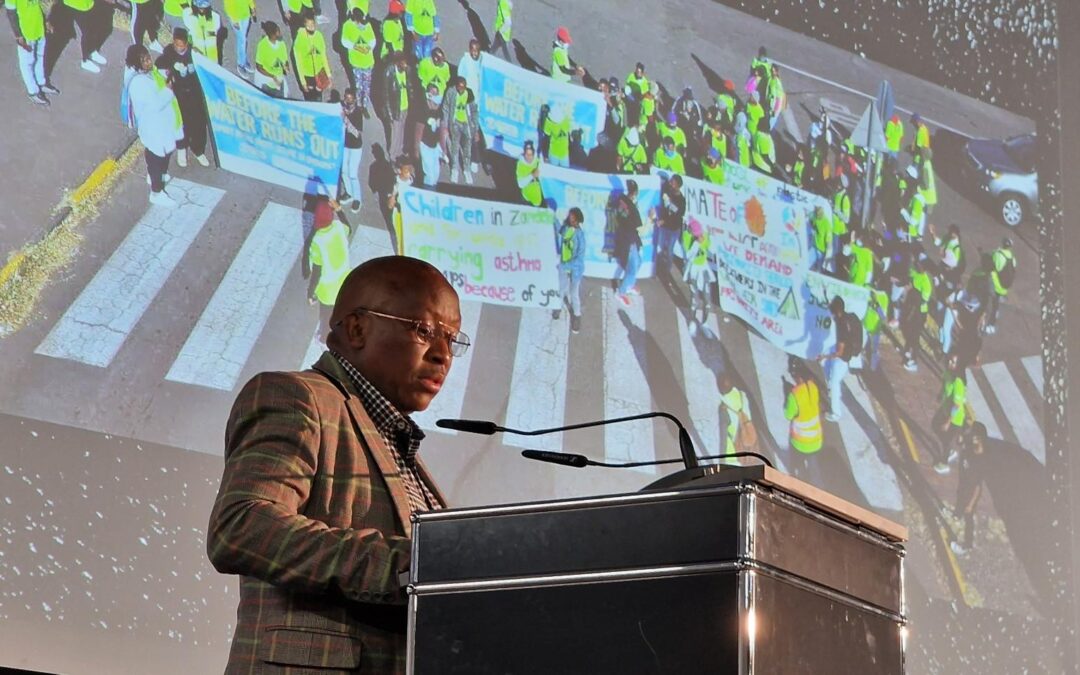
Statement by the Life After Coal campaign
Renewable energy (primarily solar PV and wind) supported by storage can and should make up all of South Africa and Africa’s electricity mix as soon as possible. This is the only way to address energy security, energy poverty and climate justice.
There is no rationale for new plans to procure power from expensive, polluting fossil fuel technologies like gas going forward, and decisions to invest in any such technology at this stage are not backed up by scientific and technical evidence.
Ramp-up of renewable energy
The Life After Coal campaign generally welcomes the South African Presidential Climate Commission’s Electricity Planning Recommendations launched on 1 June 2023. The Recommendations strongly support the transition to a largely renewables based electricity system – calling for 50-60GW of variable renewable energy by 2030 – while also prioritising the urgent need for access to affordable electricity for all.
“The addition of 11 GW of wind and solar by the end of 2025 would enable the near total phasing out of very expensive diesel open cycle gas turbines (OCGTs) and the decline of loadshedding to zero by 2026. The elimination of diesel use and the rapid decline of coal production, to less than 40% of current rates by 2030, will result in a proportional decrease in the emissions of carbon dioxide, sulphur dioxide, nitrogen oxides (NOx) and particulate matter, with corresponding climate and health benefits,” says Prof Eugene Cairncross, a technical advisor to the Life After Coal campaign.
Expansion of the grid
While the prioritisation of the expansion of the transmission grid to accommodate the shift from coal generation located mainly in Mpumalanga and Limpopo to wind and solar plants that are widely distributed is critical, the exclusive reliance on a revised IRP to provide guidance for short- and medium-term grid infrastructure investment will slow down or even halt the urgently needed acceleration of deployment of renewables. There is insufficient focus on the opportunities for the immediate optimal use of existing grid capacity, for example through Eskom’s proposal to lease land with proximal access to the grid to enable the immediate deployment of 2 000 MW, and several multiples more in the medium term, of RE’s (wind, solar and battery storage). This could kick-start the acceleration of RE deployments while addressing an important just transition objective of bringing substantial new investment into areas affected by closing coal power plants.
The role of gas
Although the PCC’s Recommendations significantly limit the role of gas in a future power system, the report still contains some ambivalence about the use of gas for peaking. Using gas for peaking will increase the average cost of electricity; pumped water and battery energy costs are much lower. Gas used for peaking support, instead of pumped storage and/ or batteries, will increase system costs.
The campaign has long held the position that investing in gas for power in South Africa is unnecessary, economically risky and comes with a number of public health and climate change threats. Last year, the campaign released a factsheet and article on the harms of gas supported by global scientific evidence and expert local research. The factsheet provides compelling and accessible evidence to show that:
- Gas is a major contributor to climate change, particularly because of its methane content
- Gas poses serious threats to human health at every stage of its lifecycle, including adverse birth outcomes and premature mortality
- The extraction, processing, transport and use of gas leads to land degradation, air and water pollution and habitat and biodiversity loss
“We reject the narrative of gas being a viable alternative to coal, or a necessary part of South Africa’s future energy mix,” says CER’s Michelle Koyama. All across Africa, the desperate ‘dash for gas’ has been met with stiff resistance from civil society and local groups.”
There has been significant resistance to specific gas projects proposed in South Africa – through legal submissions and appeals to environmental authorities and NERSA, and through court proceedings. Activists have also made multiple legal and Parliamentary submissions around the push for gas exploration, production and power generation. Examples of such work are linked below:
- Resistance to the three proposed Karpowerships projects through objections on the EIA reports, a complaint regarding the lack of public participation conducted by the company, and an appeal against condonation granted to resubmit it’s EIA’s late and without public participation.
- Submissions made by the Life After Coal campaign on the Upstream Petroleum Resources Development Bill
- An interdict and judicial review application to stop the proposed seismic testing for offshore oil and gas exploration along south Africa’s Wild Coast (this judgment is currently on appeal)
Resistance to TEPSA (Total), and Rhino Oil and Gas Exploration SA’s applications for prospecting rights
- Submissions made by the Life After Coal campaign on the Gas Masterplan Basecase Report
- Objections to NERSA and a judicial review application to set aside the determination for 3000 MW of gas power for Eskom in Richards Bay. Although civil society groups were unsuccessful with the judicial review application in the High Court, they received permission from the court to appeal to the Supreme Court of Appeal (and the court ordered government and Eskom to pay their legal costs)
- An administrative appeal against the environmental authorisation for the 2000MW Phakwe Power plant in Richards Bay
- A judicial review application of the environmental authorisation granted for Phinda Power’s proposed 320MW gas-to-power plant, proposed for the Richard’s Bay Industrial Development Zone (IDZ).
- A judicial review application for the decision to approve an amendment to the environmental approval for another gas to power plant, RB2, also in Richards Bay.
Multiple experts agree that the role for gas, if anything, is not at a baseload or mid-merit capacity. “Energy modelling shows that renewables are the quickest and cheapest way to get much-needed capacity onto the grid. By committing to harmful and expensive gas, government is displacing this much needed renewable capacity, and the most practical solution to SA’s loadshedding woes”, says Avena Jacklin, groundWork.
Based on its comprehensive review of a wide set of models, the Climate Commission’s Recommendations make it clear that gas can only be an option for peaking support at low utilisation: “None of the models build new coal or nuclear or have gas at high utilisations.”
There are multiple administrative and legal proceedings pending regarding the proposed procurement contract and environmental approvals for the Karpowership projects in Saldanha, Coega and Richards Bay.
Civil society groups in Mozambique and in the region have united to challenge French oil and gas major Total’s destructive gas project in Cabo Delgado.
“Don’t Gas Africa” is a continent wide campaign led by African civil society to ensure Africa is not locked into fossil gas production.
A report launched earlier this week in Kenya by Powershift Africa, entitled “Just Transition: A Climate, Energy And Development Vision For Africa” also makes clear that “a genuine energy transition must move rapidly away from fossil fuel dependence”. “Rather than doubling down on fossil fuels, Africa’s right to development would be better served through renewable systems that can achieve universal access, enable food security and regional industrialisation, while advancing African and global climate goals.”
END



